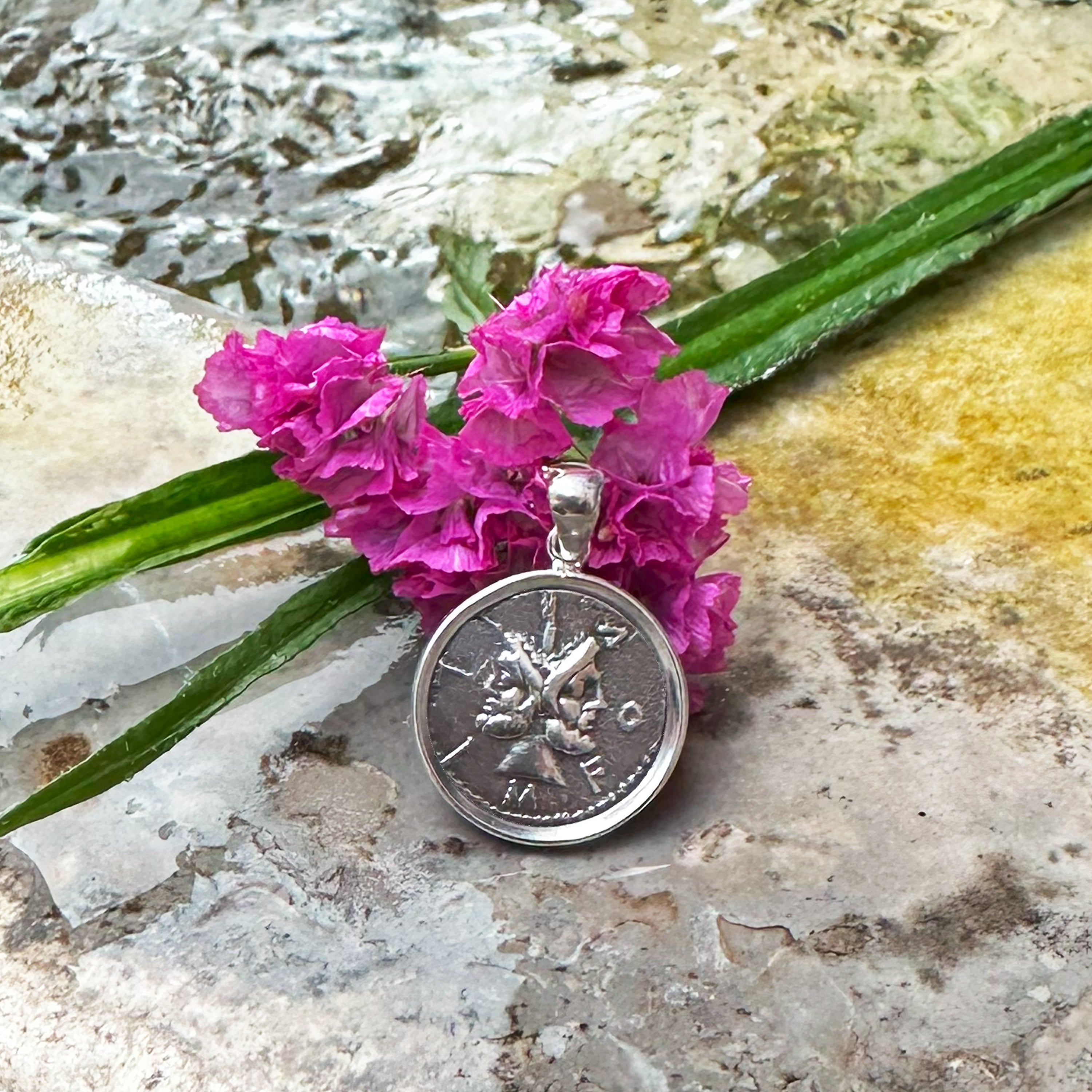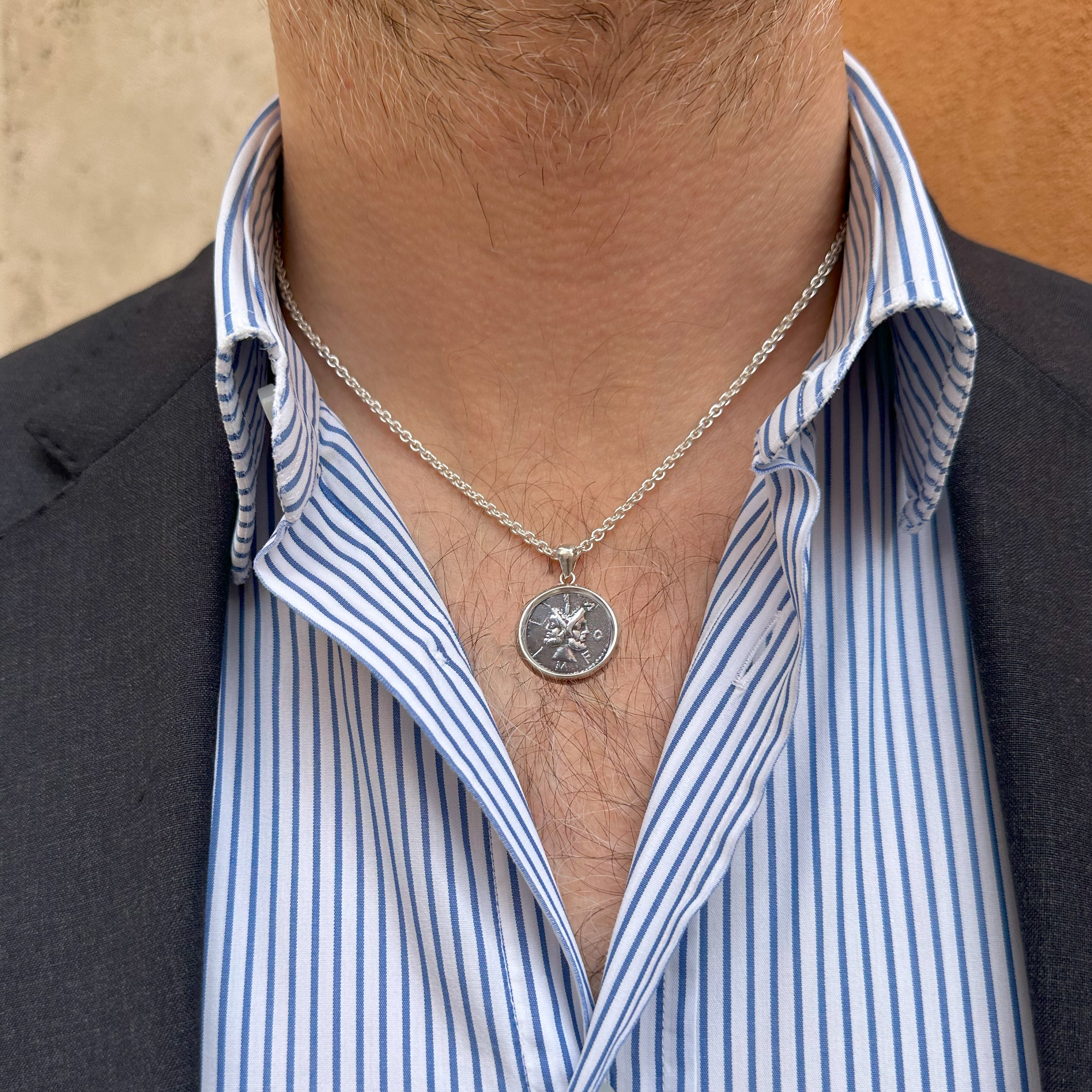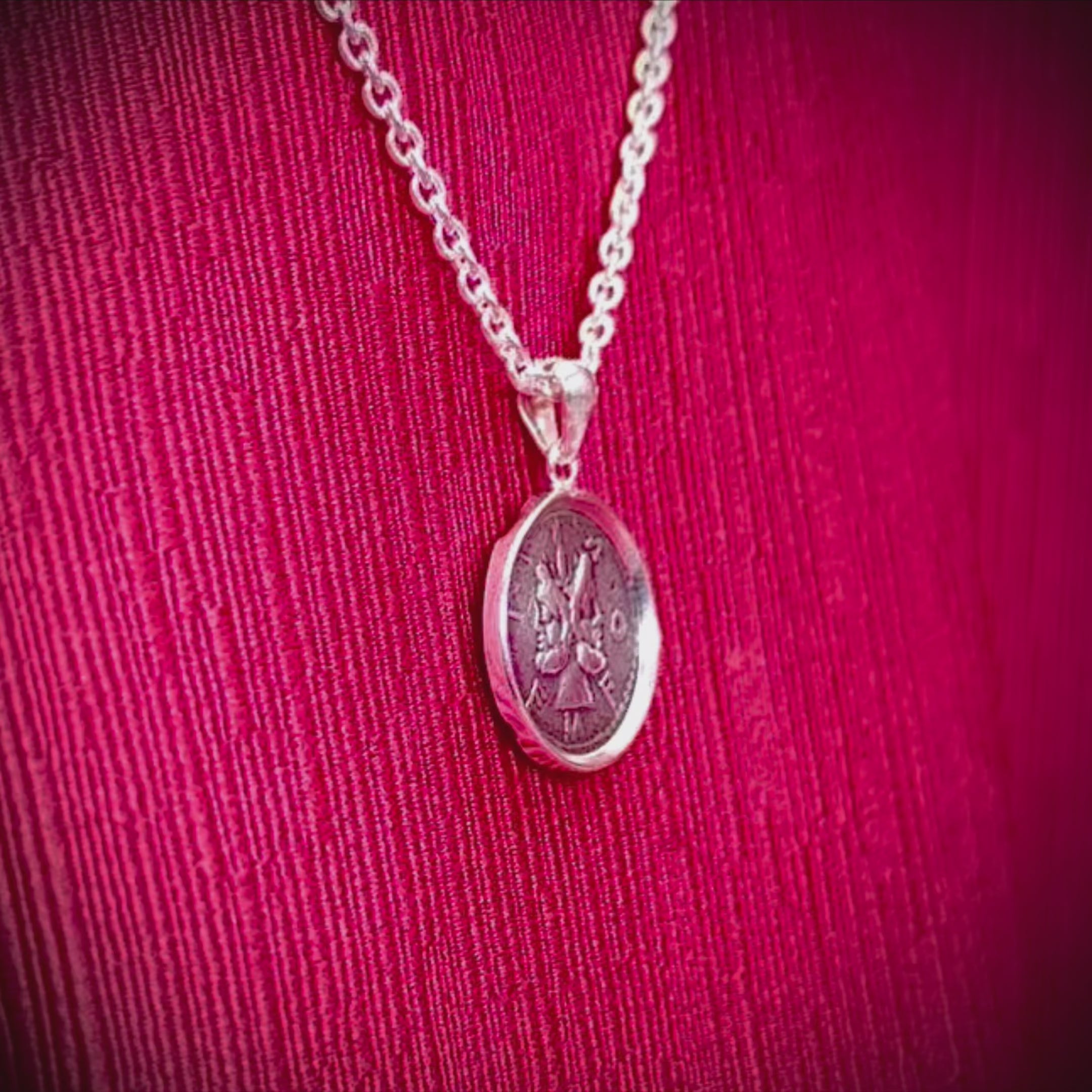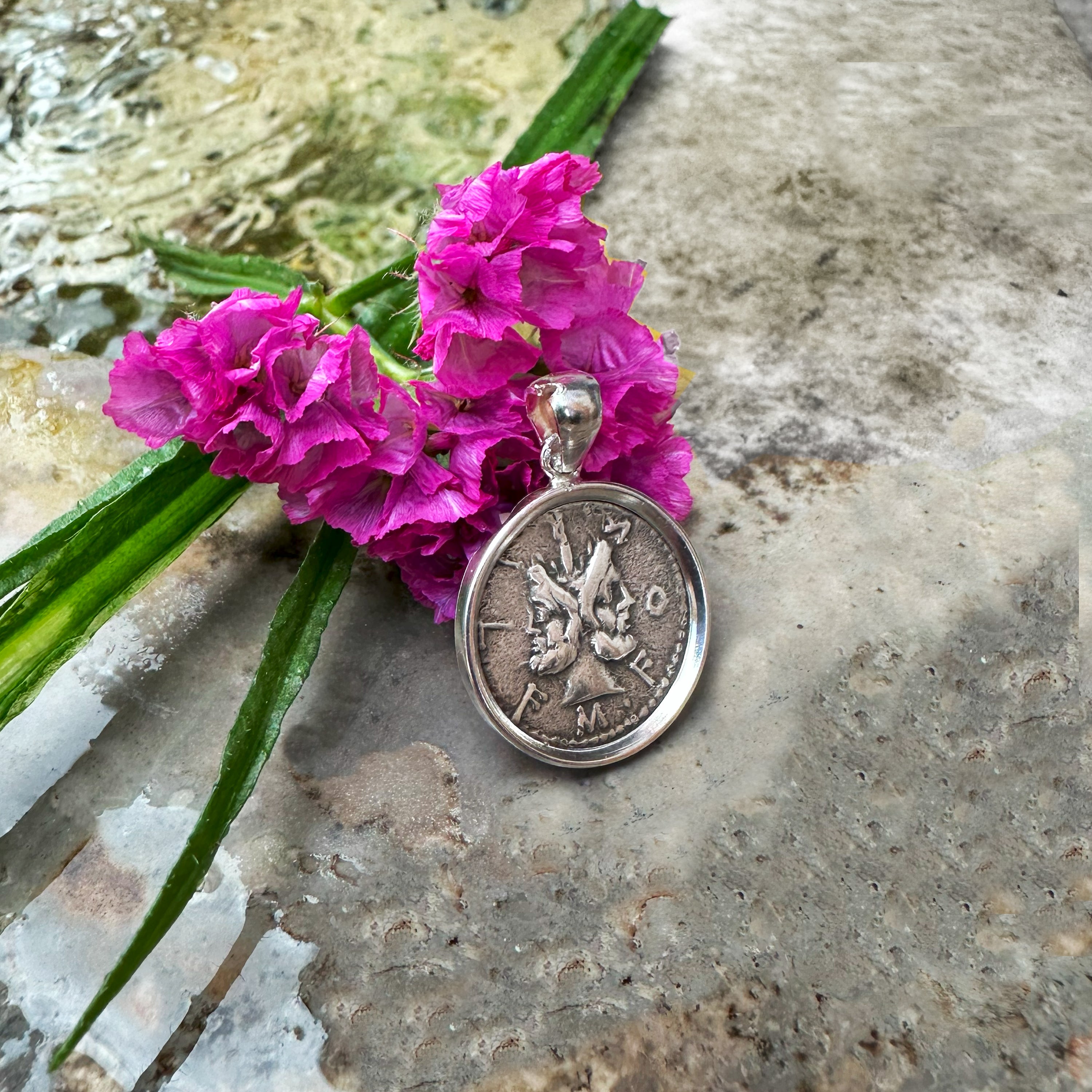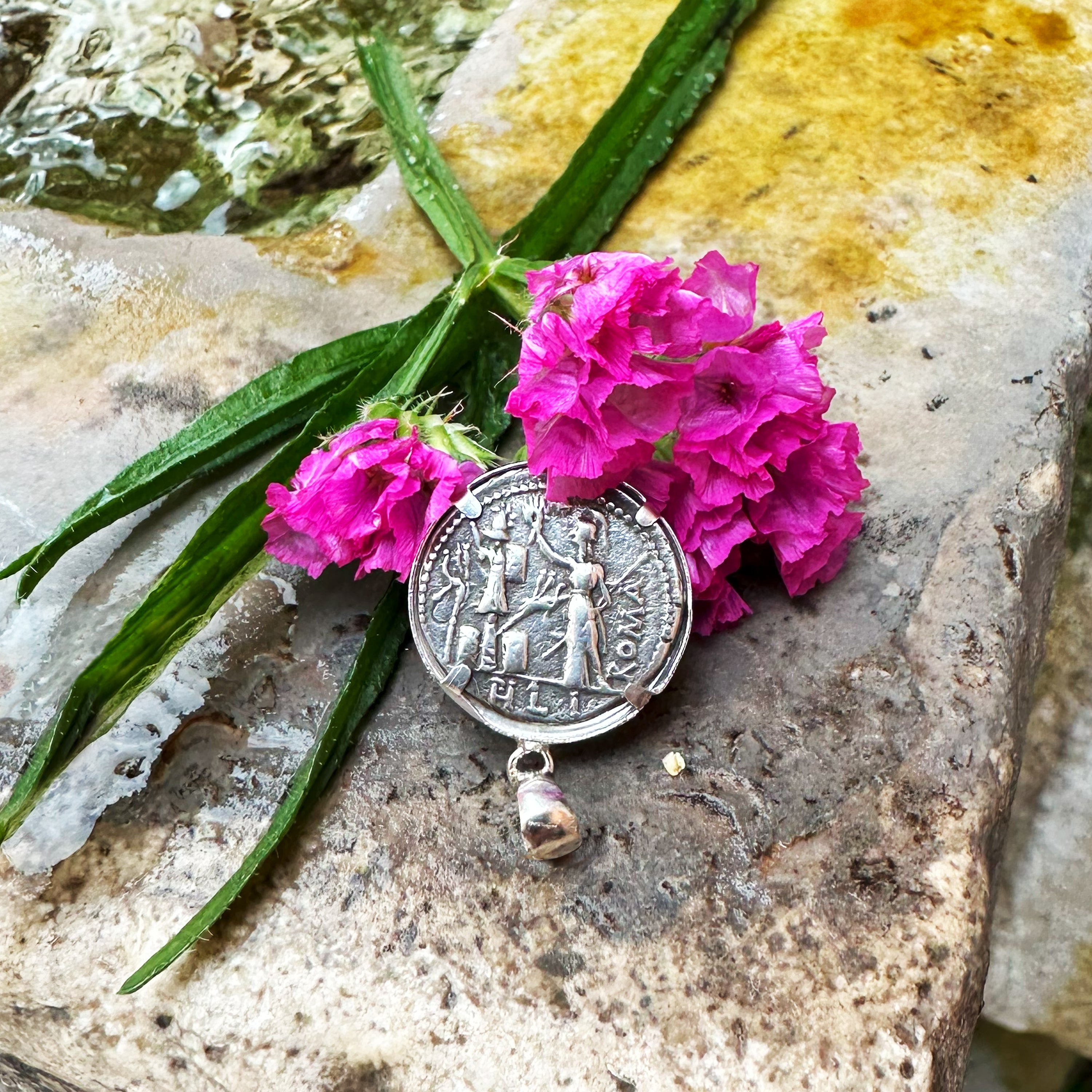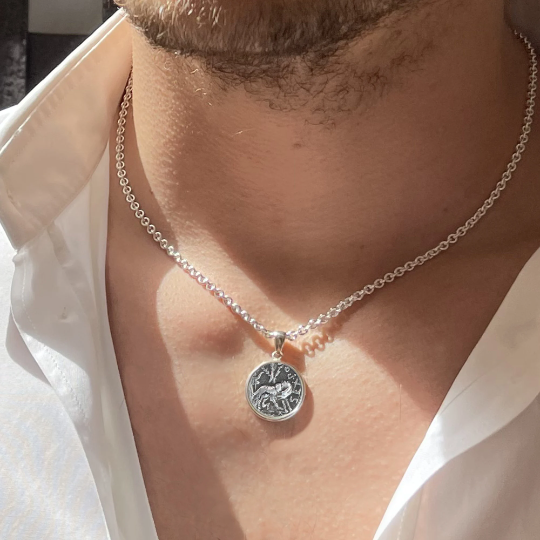GOD JANUS Genuine Ancient Roman Coin 120 BC Silver Pendant
This 925 silver pendant features an authentic silver coin from the II century B.C. depicting the two-faced Janus, with the reverse side showing the Goddess Roma crowning a trophy and the inscription "ROMA". Janus was a significant god in ancient Roman religion and myth, revered for his role as the god of beginnings, transitions, time, duality, doorways, passages, and endings.
In Roman mythology, Janus presided over both war and peace, as well as birth, journeys, trade, and shipping. The two-faced Janus, who could look to the past and future simultaneously, was considered the god of gods during moments of transition and the cycle of seasons. He was venerated as the "deorum deus" and "Ianus pater" (Janus the Father) and was considered one of the oldest divinities of the ancient Latins and Romans.
According to legend, Janus was the ancient God and King of Latium, who founded a city on the Gianicolo and gave the Aboriginal people and natives the gift of "civilization". Janus was also the father of Tiberino, the god of the Tiber, whom he had with a nymph named Camese. Janus played a crucial role in welcoming Saturn into Latium, which led to the golden age of ancient Latium.
Our jewelry store, Serra Roma, proudly presents an exquisite collection that beautifully honors the ancient traditions of Greek and Roman civilizations. Each piece in our collection, including authentic ancient Roman and Greek coins and intaglios, is accompanied by a certificate of authenticity, providing proof of its historical significance and origin.

